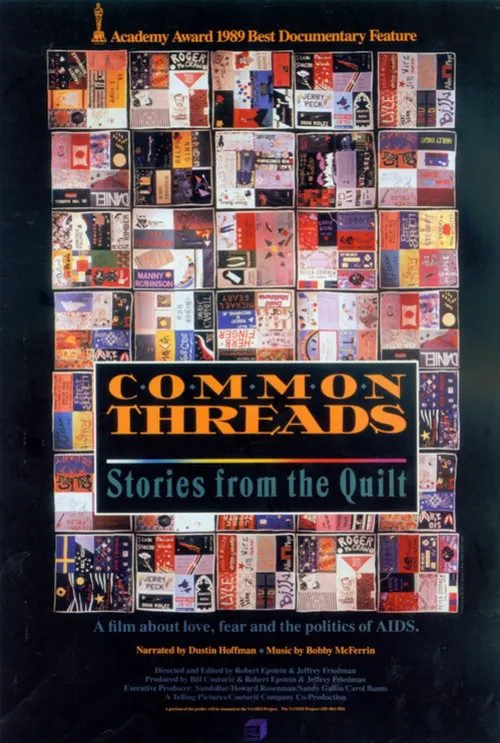Common Threads: Stories from the Quilt

Plot
Common Threads: Stories from the Quilt is a poignant documentary film that delves into the lives of six individuals who were tragically taken by the AIDS epidemic in the 1980s. Released in 1989, the film is a powerful tribute to the victims of AIDS and serves as a commentary on the social and government response to the crisis. The film begins on the eve of the Second National March on Washington for Lesbian and Gay Rights in 1987, where a group of surviving families and friends of AIDS victims gather to create panels for the Names Project AIDS Memorial Quilt. This massive quilt project, which was initiated in 1985, is a collective effort to honor the lives of those lost to the disease by sewing together panels featuring the names, photos, and stories of the deceased. Director Robert Epstein uses this unique opportunity to tell the stories of six individuals whose lives were cut short by AIDS. These stories are not only a tribute to the victims but also serve as a reflection of the broader societal response to the crisis. The six individuals whose stories are told in the film are: Robert Hillsborough, a gay man who was a community organizer; Richard Jennings, a gay man and AIDS activist; Oliver Shaker, a gay man who was killed in a hate crime; John Brown, a gay man who died of AIDS while serving in the Navy; Paul Fleischman, a gay man who was a musician; and Peter Hopley, a gay man who was an artist. Through a combination of interviews with the individuals' families and friends, as well as news footage and archival material, Epstein weaves together a rich tapestry of stories that not only highlight the human cost of the AIDS epidemic but also expose the systemic failures that perpetuated the crisis. One of the most striking aspects of Common Threads is its portrayal of the gay and lesbian community's response to the AIDS epidemic. In the early days of the crisis, the gay community was largely ignored by the government and mainstream society. It was left to community organizers and activists to provide support and care for those affected by the disease. The film shows how the gay community came together to provide a network of care and support, and how they fought for recognition and resources to address the crisis. The film also highlights the government's inaction and even hostility towards the gay community during the early days of the AIDS epidemic. The Reagan administration's refusal to acknowledge the crisis or provide adequate funding for research and treatment led to thousands of unnecessary deaths. The film exposes the shocking lack of humanity and compassion displayed by government leaders, who seemed more concerned with containing the crisis than with saving lives. Common Threads is not only a powerful tribute to the victims of AIDS but also a scathing critique of the social and government response to the crisis. The film serves as a reminder of the importance of compassion, empathy, and action in the face of crisis. Through the stories of the six individuals featured in the film, Epstein highlights the human costs of inaction and the importance of community and advocacy in the fight against injustice. The film's title, Common Threads, refers to the idea that despite their differences, the individuals featured in the film share a common experience of loss and struggle. The title also reflects the idea that the AIDS epidemic was a common denominator that brought people together in a shared struggle for recognition and justice. Common Threads is a powerful and moving documentary film that serves as a tribute to the victims of AIDS and a reminder of the importance of compassion and action in the face of crisis. The film's portrayal of the gay and lesbian community's response to the crisis and the government's inaction and hostility highlights the ongoing struggle for recognition and justice in the face of disease, poverty, and oppression.
Reviews
Recommendations



